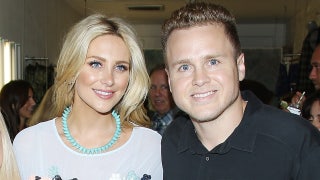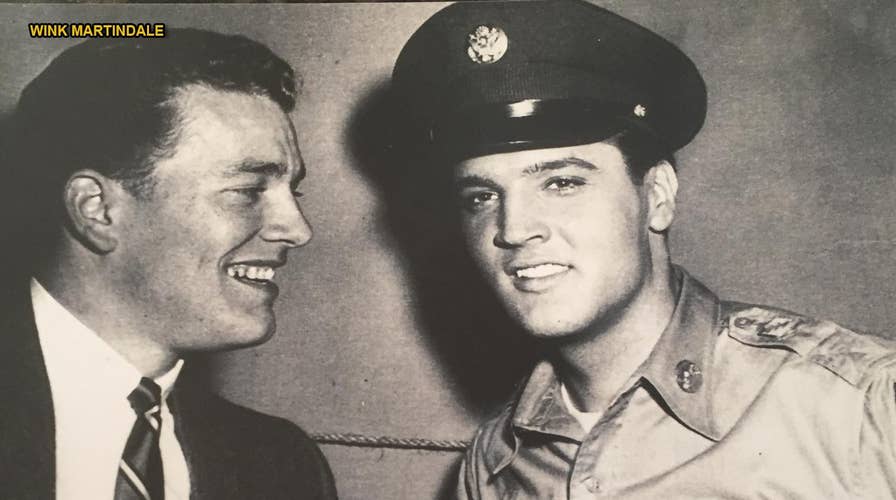Elvis Presley's pal Wink Martindale reveals why he 'broke down' after seeing The King for the last time
Radio personality and game show host Wink Martindale recalls his friendship with Elvis Presley, why he 'broke down' after seeing The King for the last time and what he feels is missing from today's game shows.
Wink Martindale had no idea his life would forever change when he met a truck driver named Elvis Presley in 1954.
After listening to the aspiring singer’s new track titled “That’s All Right Mama,” the radio and game show personality knew there was something magical occurring. And sure enough, Presley quickly transformed into the king of rock ’n’ roll.
But despite Presley’s reign in both music and Hollywood, the iconic performer passed away on Aug. 16, 1977, at age 42 from a heart attack.
WANDA JACKSON DETAILS HER RELATIONSHIP WITH ELVIS PRESLEY
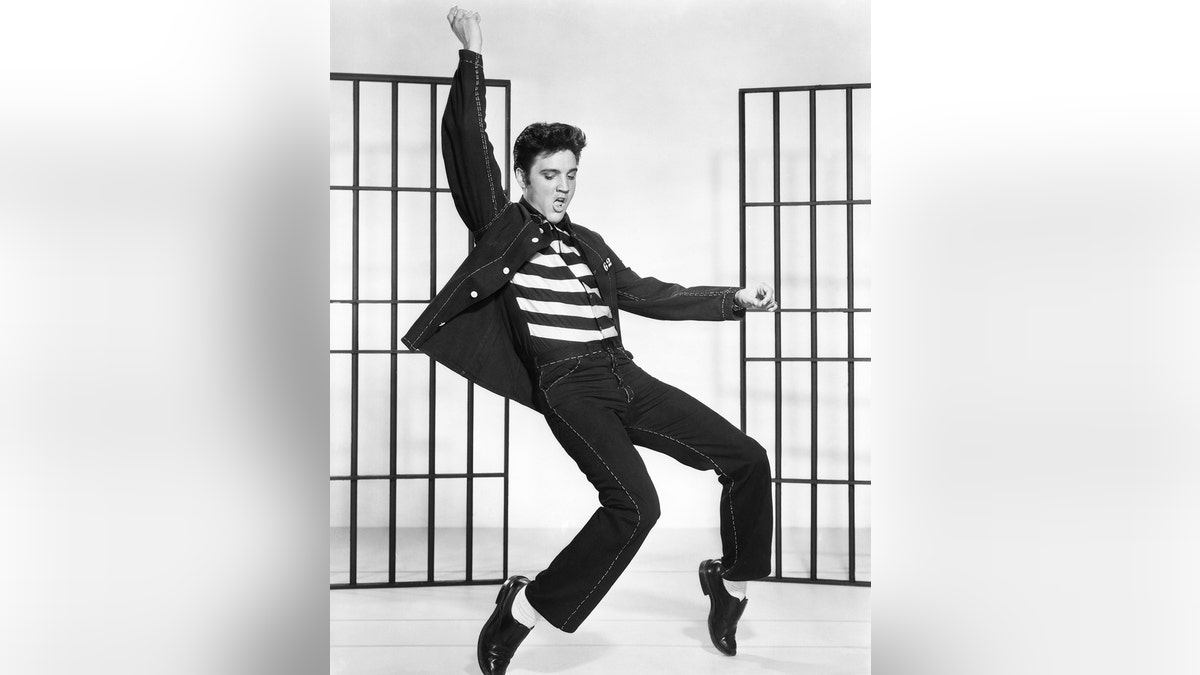
Elvis Presley on the set of "Jailhouse Rock," directed by Richard Thorpe. (Photo by Metro-Goldwyn-Mayer/Sunset Boulevard/Corbis via Getty Images)
Martindale, 85, spoke to Fox News about how he met his beloved pal, their heartbreaking final meeting and how he continues to pursue his own passion to entertain others.
Fox News: How did you meet your pal, Elvis Presley?
Wink Martindale: I met Elvis Presley on a hot July night in 1954. I was morning man at WHBQ Radio in the Chisca Hotel in Memphis, Tennessee. I did the morning show called "Clockwatchers." At night from 9:00 to midnight, we had a wild DJ on the air who played black music for white kids in those days. They called it race music, rhythm and blues music. He had 65 to 70 percent of the audience.
Now, even though I worked mornings, I happened to be there this particular night showing some of my hometown buddies around the radio station. I heard this commotion coming out of the studio where Dewey Phillips was doing his show called "Red, Hot and Blue." I excused myself from my friends, and I walked into the studio. I discovered that Sam Phillips, founder of Sun Records, had walked in with an acetate — not a finished record — but an acetate of a recording he had made just two hours earlier by a truck driver for Crown Electric Company whose name was Elvis Presley.
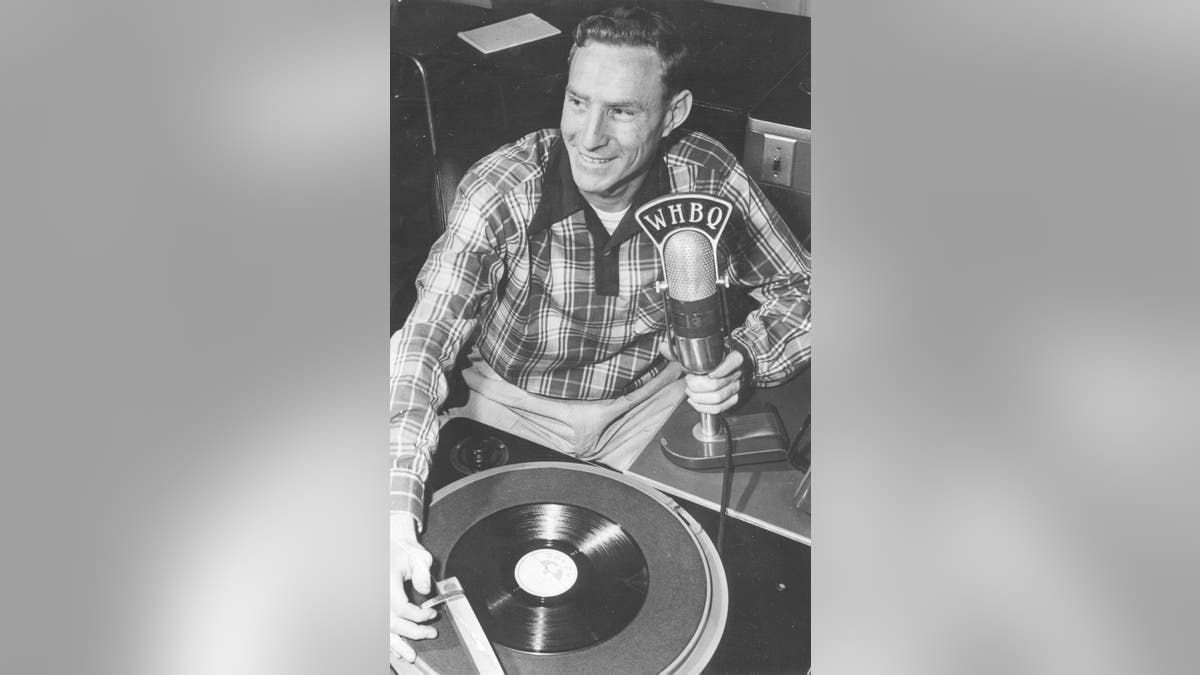
Dewey Phillips — Photo by Michael Ochs Archives/Getty Images
ELVIS PRESLEY 'WAS MY FIRST LOVE,' SAYS FORMER MISS TENNESSEE
He wanted [DJ] Dewey Phillips to test it on the air to see if he had anything. Dewey Phillips played it. The switchboard lit up. It was called "That's All Right Mama." It turned out to be his first hit. He played it seven times in a row. I was the one delegated by Sam Phillips to call Elvis' parents, who lived in low rent housing out in east Memphis called Lauderdale Courts. They were very poor. I got on the phone, and I called the Presley residence and Gladys, Mrs. Presley, answered the phone.
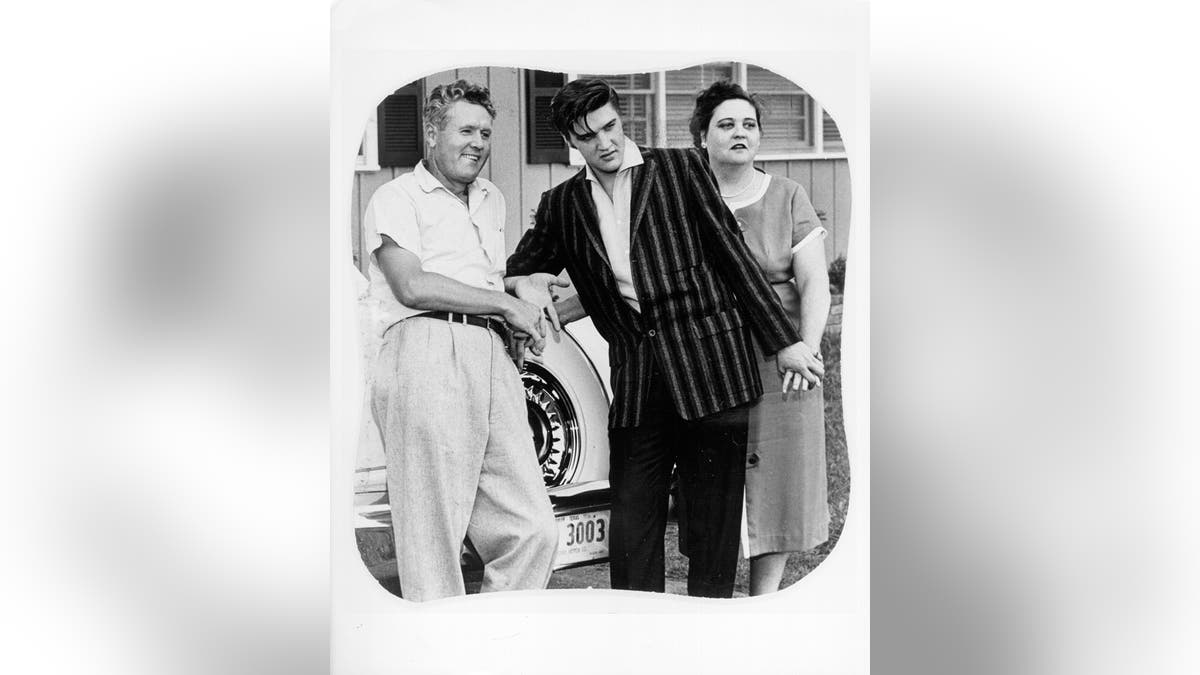
Rock and roll singer Elvis Presley poses for a portrait with his parents Vernon and Gladys Presley in circa 1956. (Photo by Michael Ochs Archives/Getty Images)
Fox News: Was Elvis’ family aware of what was happening on the radio?
Martindale: They were listening, of course, and they were very excited about the way the audience was reacting to "That's All Right Mama," Elvis' first record. I said, "Mrs. Presley, Dewey would like him to come down to the studio. He wants to interview him. Where is he?" She said, "Well, he was so nervous about his record being played. He went to see a double-feature Western. You'll find him at Suzores Theatre on Decatur Street."
They got in their truck, and they went over to the Suzores and walked up and down the dark aisles. There was Elvis sitting all by himself watching this Western movie. They whispered to him about the excitement being generated by "That's All Right Mama." He, of course, was excited. They came down to the station. Dewey put him on the air and interviewed him. It was his very first interview as a pro. I met him that night, and he remained my friend until the day he died.
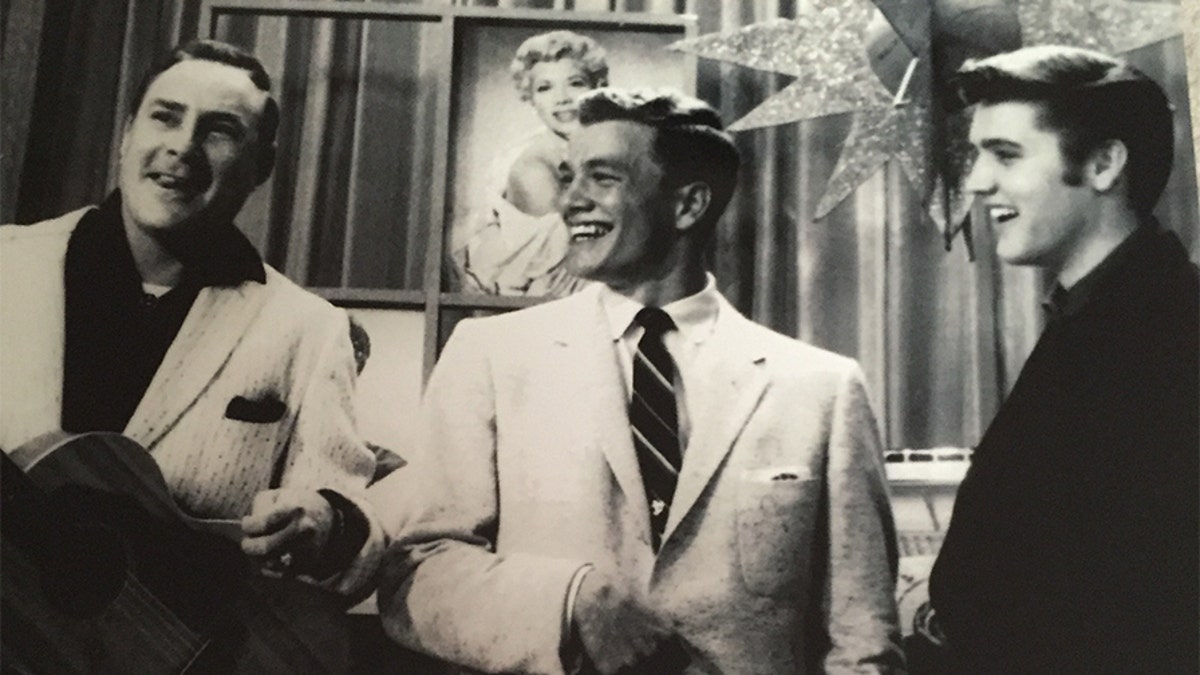
Wink Martindale (center) says he and Elvis Presley (right) became fast friends. — Courtesy of Wink Martindale
Fox News: What surprised you the most about Elvis?
Martindale: He was a giver. Very few people knew that he gave away literally millions and millions of dollars to charitable organizations not only in this country but all over the world.
He was a great giver. If he was your friend, he was your friend until the day you died. I mean he would always be your friend and do anything for you that you needed him to do. He was that kind of a person.
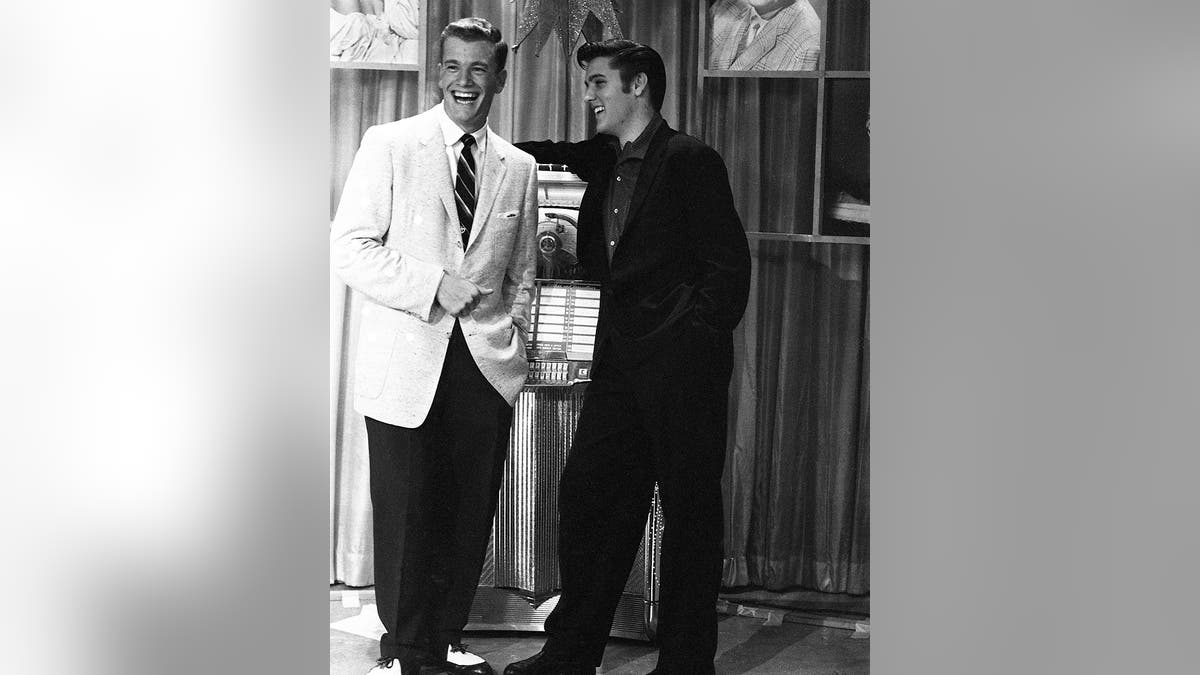
American singer Elvis Presley with presenter Wink Martindale (left) on Wink's television show "Teenage Dance Party" in Memphis, Tenn., on June 16, 1956. (Photo by Silver Screen Collection/Getty Images)
Fox News: Do you remember the last time you spoke to Elvis?
Martindale: Yes, I do. My wife, Sandy… took me to Las Vegas to see Elvis’ show at the International Hotel on my birthday in 1976. He knew we were coming. He was doing two shows a night at that time at the International. Between shows, he wanted Sandy and me to come backstage to his dressing room to chat… He had just seen us that day on a show called "Tattletales" on CBS… He was astounded to see how much we knew about each other. Little details we knew about each other because he had dated my wife for six years before I ever met my wife.
I remember so well [Elvis] making this statement, "Gee, Wink, look, how well you've done. Look at how successful you've become. I'm so proud of you." We jokingly said many times since then, "What's wrong with this picture? Elvis Presley telling me how well I've done." Well, we walked out of there that night very sad because he was already big. He was overweight. He was pasty looking. He didn't look in good health.
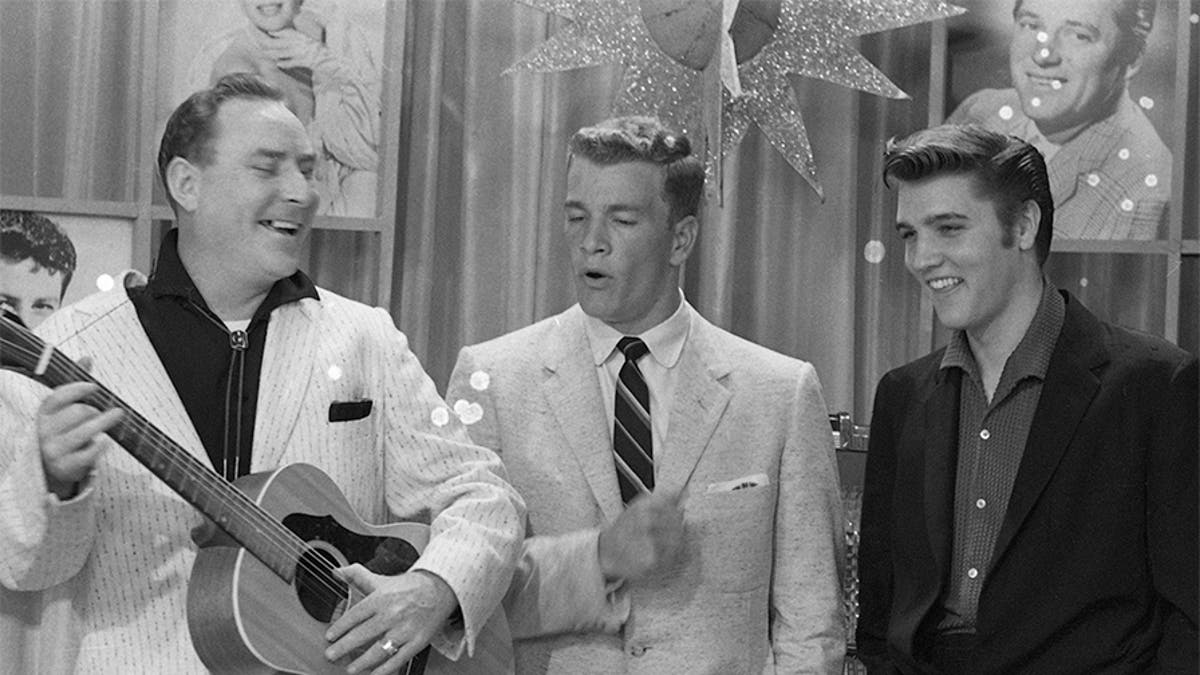
Disc jockey Dewey Phillips, television presenter Wink Martindale and singer Elvis Presley on Wink's television show "Teenage Dance Party" in Memphis, Tenn., on June 16, 1956. (Photo by Silver Screen Collection/Getty Images)
Fox News: How did Elvis’ surprising look make you feel?
Martindale: I remember so well saying to Sandy as we walked out of the International Hotel, "Sandy, that's the last time we'll ever see him alive." When we got back to our hotel, we close the door behind us. We just broke down, and we both cried because of what we had just witnessed. We tried to put the best face on it. But that was the last time that we spoke and the last time we ever saw him alive.
LISA MARIE PRESLEY REVEALS PAST BATTLE WITH ADDICTION
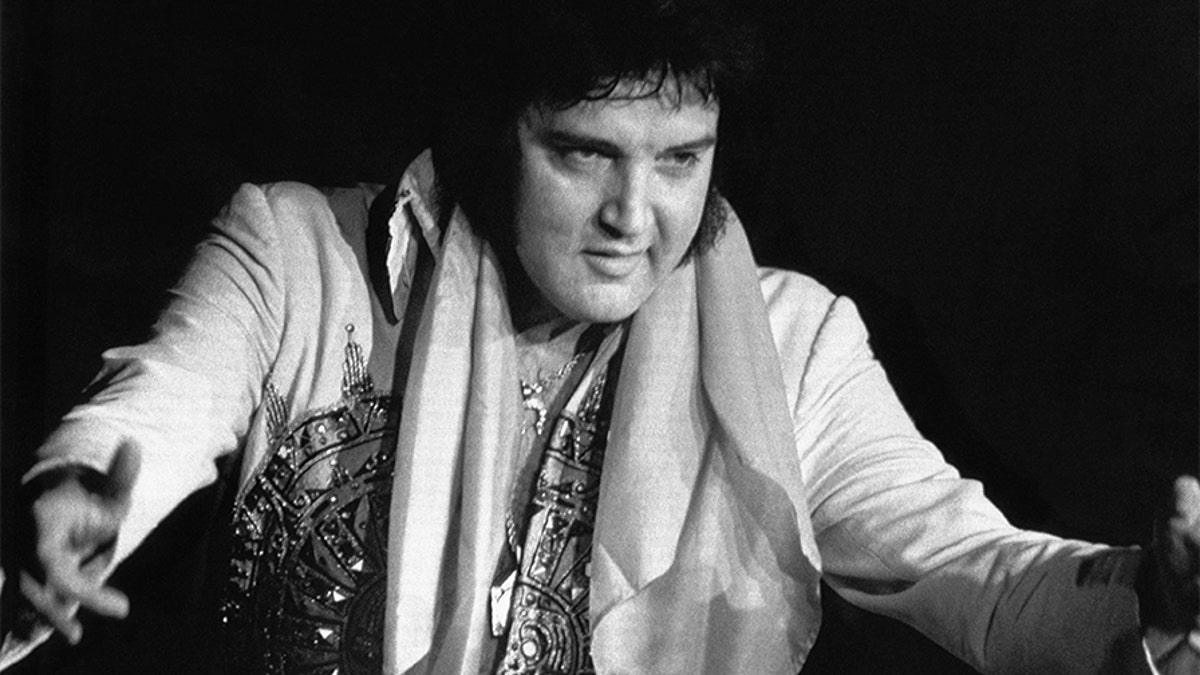
Elvis Presley in 1977. — Getty
Fox News: How did you make sense of his passing?
Martindale: Well, it didn't come as a shock that he passed because most people knew that he had been in and out of hospitals for over two years, and we knew he wasn't in good health. He didn't eat right. Nothing was right about his diet. I wasn't shocked. But I remember I was on the air… I was working for Gene Autry on KMPC in Los Angeles. The newsman came in because he knew of my relationship with Elvis, and he didn't want to just break in with a bulletin about his passing.
I just broke up and I just played records and played commercials for the rest of my 40 minutes of my show because I was so broken up by the news, although I knew it was going to happen because of his being in such bad health.
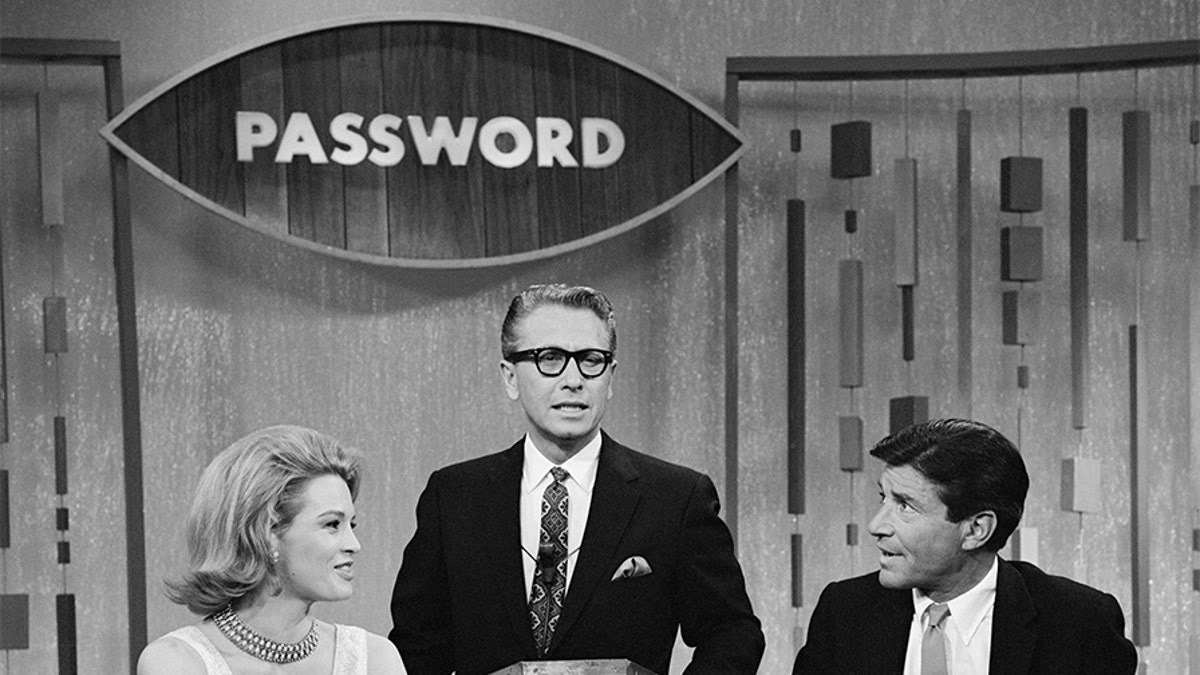
Angie Dickenson and Efrem Zimbalist, Jr. join host Allen Ludden (center) on the CBS game show "Password," on Jan. 13, 1965. (Photo by CBS via Getty Images)
Fox News: You’ve had your own successful career. What was it about game shows in particular that drew you in?
Martindale: I’d never really thought about being a game show host, never given it a thought. But there was one game show in particular that I became addicted to, "Password" with Allen Ludden… very simple but fun and compelling. I just loved that show.
… I found out that [Ludden] went in two days a week, knocked out 10 shows, and the other five days he played golf. I thought, "Man, that's not a bad way to make a buck." I went to my agent [and said,] “Send me out on some game show interviews. I'd like to try out for a game show host." I think it was the third one that I got. It was a local show called "What's the Name of That Song" which was on channel 5 KTLA in Los Angeles.
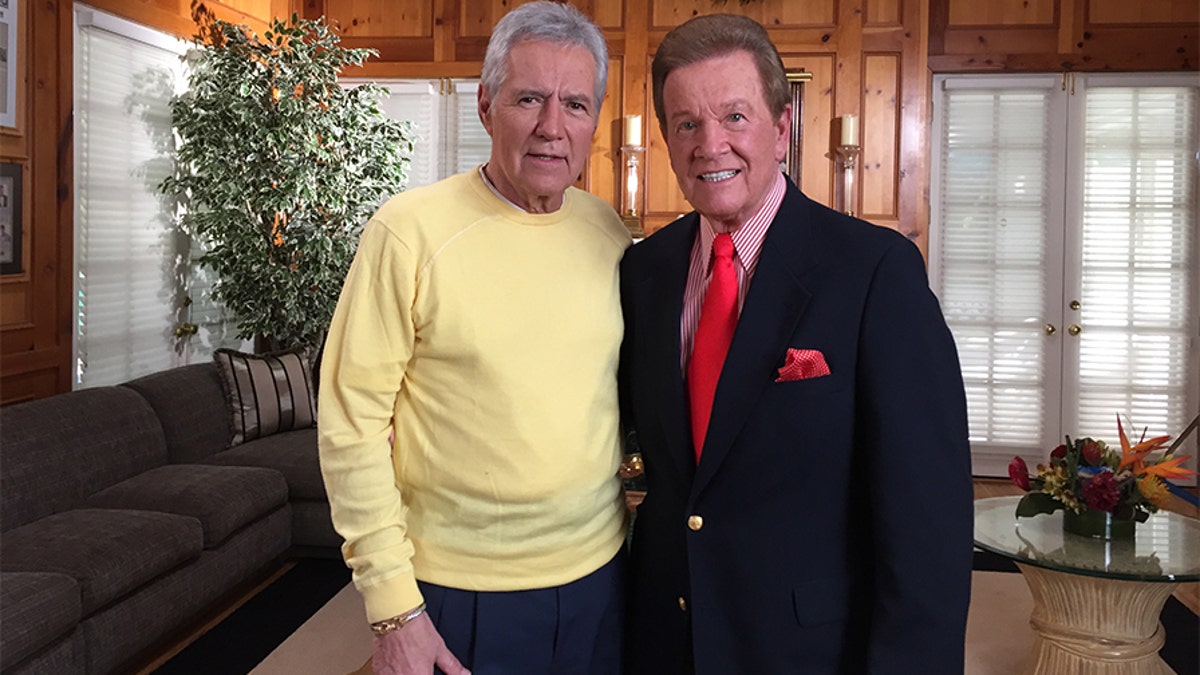
Wink Martindale with Alex Trebek. — Courtesy of Alex Trebek
THE TRUE STORY BEHIND ELVIS PRESLEY'S COMEBACK SPECIAL
The deal was that if it was successful locally, they'd put it on NBC. It became successful. It went on NBC in 1965. That was my first network game show. These network guys here in New York that make the big bucks, they make the big decisions. Somebody decided, his name was Bob Aaron, he was in charge of daytime at NBC, and he decided that Wink was too juvenile sounding. He knocked the K off my name. For that one show, I became Win Martindale.
That's how I got started in the world of game shows. Here it is 21 shows later that I've either hosted or produced. I've been blessed. I always wanted to be in radio as a kid. I had never thought about being in television, but then television came along in the early '50s, and I got to do my TV shows in Memphis and not everybody gets up in the morning and goes to a job they truly enjoy. I can say that I've been blessed because I got to do what I wanted to do from the time I knew what a microphone was.
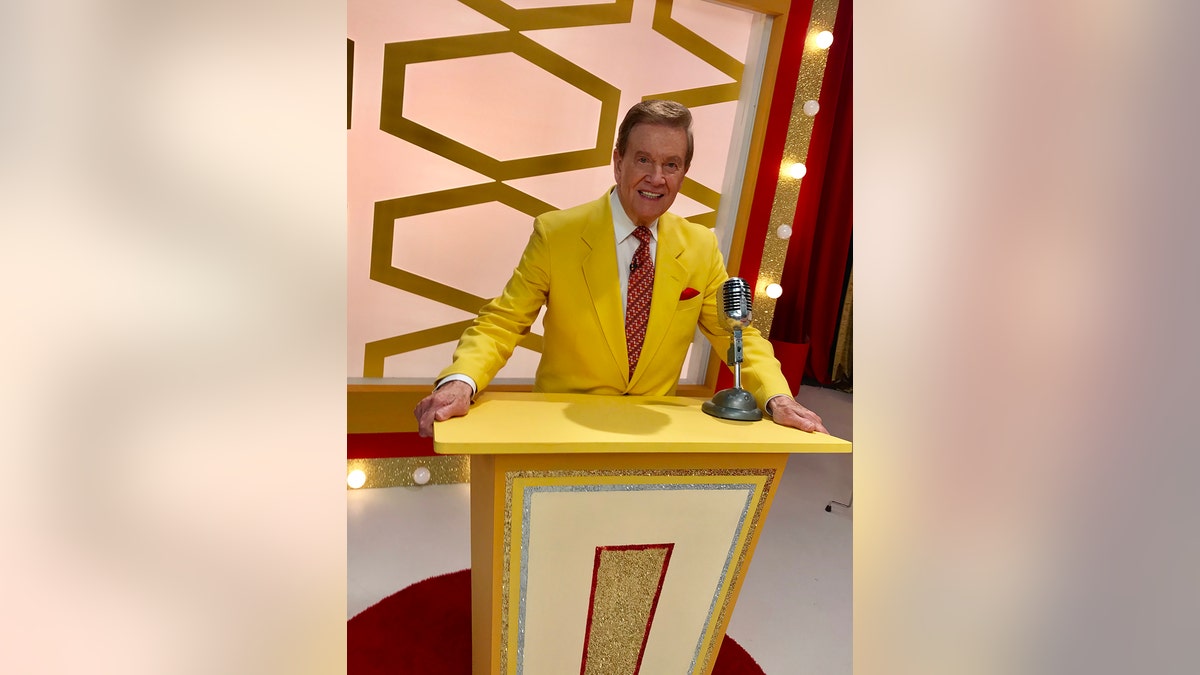
Wink Martindale has zero plans to slow down. — Courtesy of Wink Martindale
Fox News: What do you think is missing from today's game shows?
Martindale: I think so much of the personality, if you will, of a game show is missing. I think of "Deal or No Deal" with Howie Mandel. That wasn't really a game show. That was a guessing game. You just guessed which one of those briefcases the money was in. The real game, if there was such... was [the] back and forth conversation, the backstory between the contestant and Howie Mandel. ... Half of the show, if not more, was talking to the contestants before they finally got around to selecting the briefcases. To me, that's not really a game show.
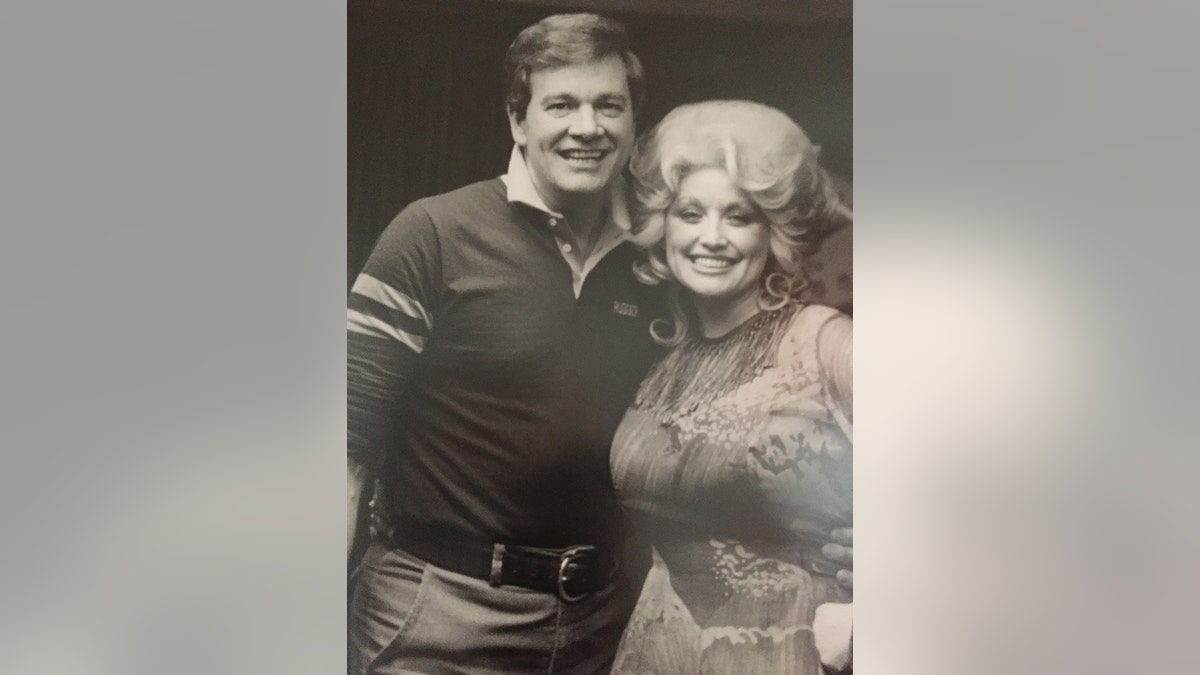
Wink Martindale with Dolly Parton. — Courtesy of Wink Martindale
"Who Wants to Be a Millionaire" was the first game show of its type that gave away $1 million. That's when game shows really changed. On our show, "Tic-Tac-Dough," the most we ever gave away to one player was about $476G that Thom McKee won. At the time, that seemed like a lot, and it was for its time in the early '70s. Until Ken Jennings came along on "Jeopardy"… But I guess the biggest change would have to be the personality of the game show that changed because it's more about money than it is about the game.
PRISCILLA PRESLEY REVEALS ELVIS PRESLEY'S FINAL DAYS
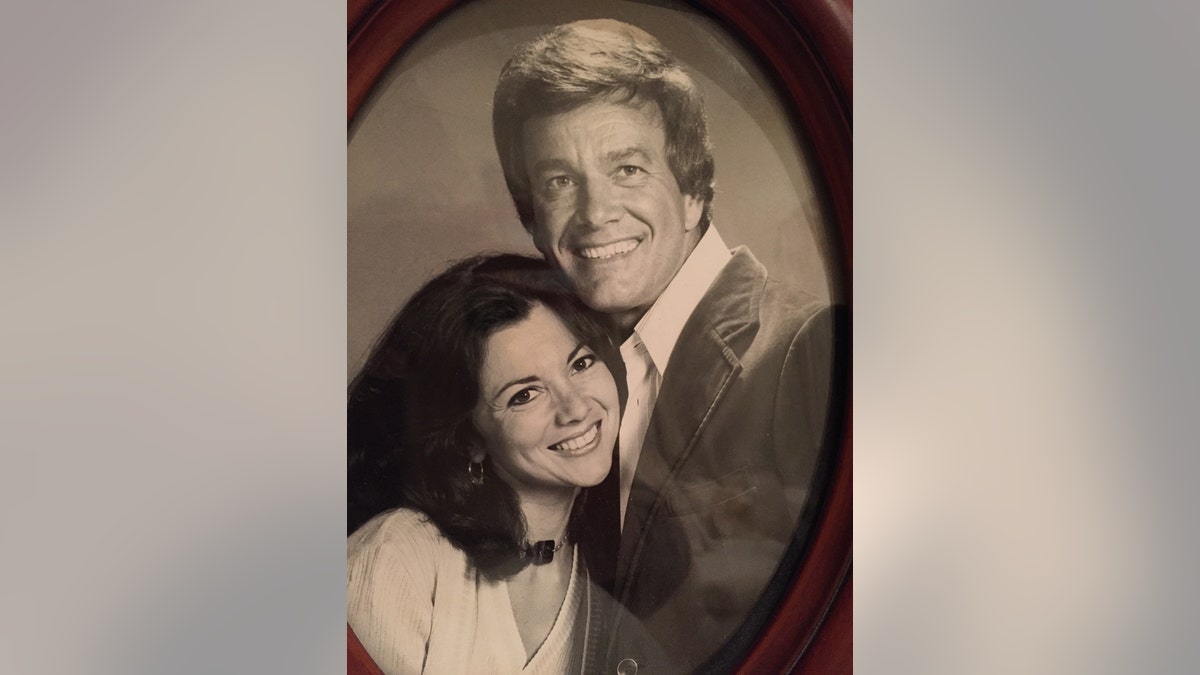
Wink Martindale with his wife Sandy, who previously dated Elvis Presley. (Courtesy of Wink Martindale)
Fox News: What’s the secret behind your lasting marriage?
Martindale: Friendship. We're the closest of friends. Anytime I'm asked that question, that one word pretty much sums it up. We've been married 44 years. We've known each other for almost 50 years before we were married. We always go back to the same place for our anniversary.
... I can truly say, and my friends know this to be true, that we love each other now as much or more than we did the day we got married and the first day we met. We do everything together. We love being together… we never get tired of each other.
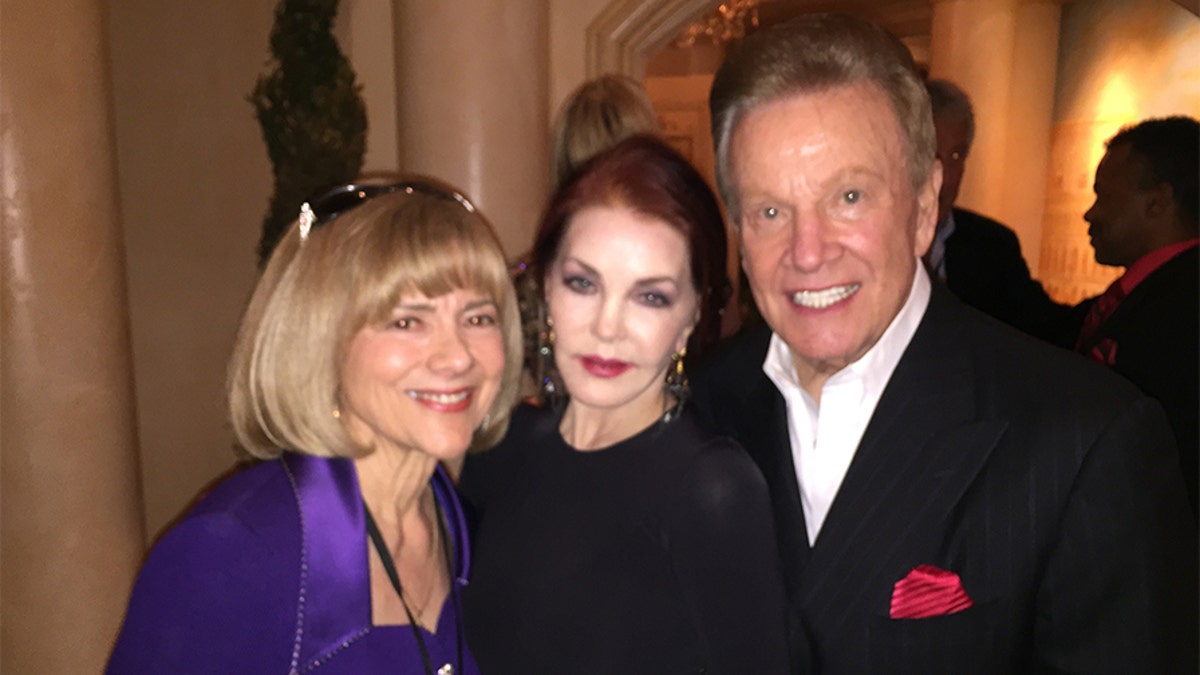
Wink Martindale (right) with Priscilla Presley (center) and the game show host's wife Sandy. (Courtesy of Wink Martindale)
CLICK HERE TO GET THE FOX NEWS APP
Fox News: What has kept you going?
Martindale: Retirement is not in my vocabulary. I always recalled something that Art Linkletter said that stuck in my brain… He said, "Retire from what? Hell, I'm not tired." That's the way I feel. I still enjoy the battle... It's not easy, but I still love that trying to climb that mountain.
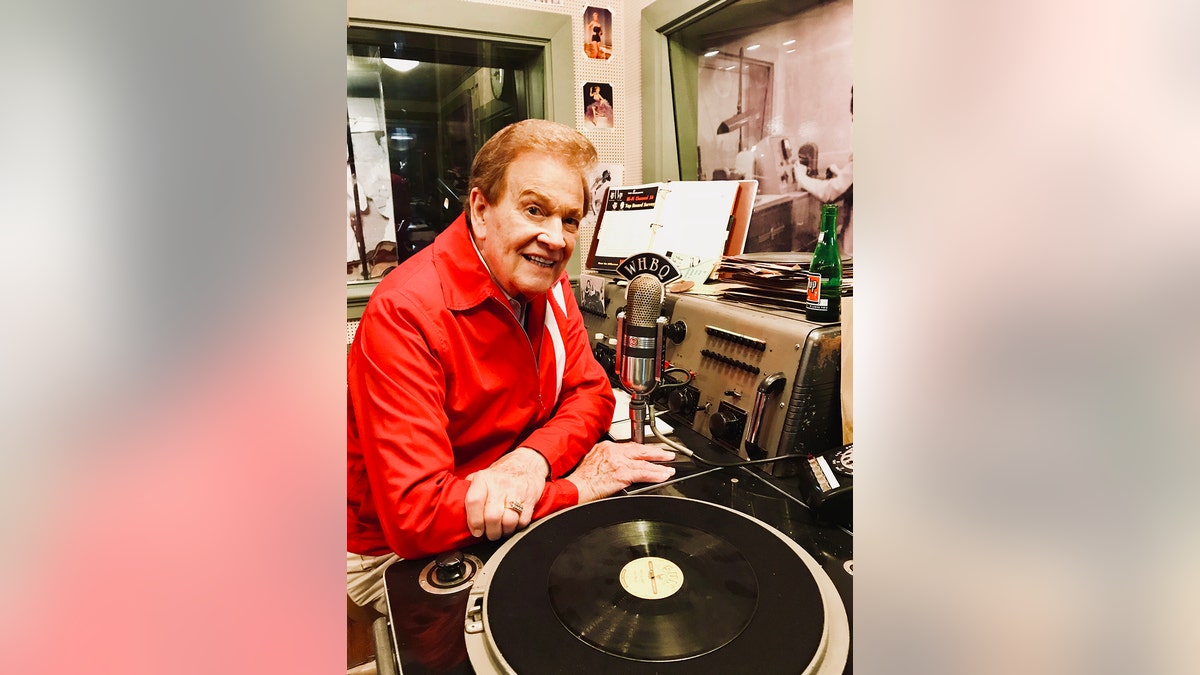
Wink Martindale today. — Courtesy of Wink Martindale
I love being active. It keeps my brain busy. I love being busy. I don't play golf. I used to play tennis. I don't play tennis anymore. I like to stay busy doing what I enjoy the most, which is dabbling in radio and television.




